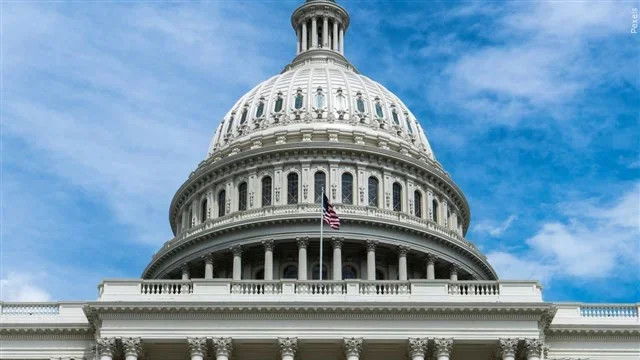Merkley, Booker introduce bill to create pollinator habitats surrounding solar power projects

WASHINGTON (KTVZ) -- Sen. Jeff Merkley, D-Ore., and New Jersey Senator Cory Booker introduced Thursday the Pollinator Power Act, new legislation that would help reverse the decline in pollinator populations by incentivizing pollinator habitats surrounding new solar projects carried out through the Rural Energy for America Program.
“Pollinators are critical to maintaining life as we know it, and as our nation embarks on a huge expansion of solar energy, we have a great opportunity to create new pollinator habitats at the same time,” said Senator Merkley. “New pollinator habitat is critical to reversing scary declines in pollinator populations, and it’s time to get creative to help our pollinators recover and thrive.”
“Many pollinators are threatened or endangered, creating a serious risk to our future food supply. It is critical to incentivize the creation and expansion of pollinator habitat across USDA programs,” said Senator Booker. “Siting pollinator habitat alongside REAP solar projects is not just a win for pollinators, but it increases the productivity of the panels and helps nearby farmers who benefit from pollinators.”
The Pollinator Power Act would direct the U.S. Secretary of Agriculture to prioritize solar projects that include the creation of pollinator habitats. Pollinator populations, such as western monarch and honeybees, have been steadily declining in recent years, and pollinators are key to ecosystems and food production in the U.S.
Merkley and Booker—who serves on the Senate Agriculture Committee—are pushing for the inclusion of this legislation in the upcoming 2023 farm bill.
The Pollinator Power Act is endorsed by The Xerces Society, Center for Biological Diversity, Sierra Club, and Kiss the Ground.
“The Pollinator Power Act will help address pollinator decline while also promoting our clean energy future,” said Scott Black, Executive Director of the Xerces Society for Invertebrate Conservation. “This is one of those brilliant solutions that will address both climate change and biodiversity loss at the same time. It will lead to a brighter future for bees and butterflies, and all the rest of us, too.”
“Our imperiled pollinators are in desperate need of all the help they can get,” said Lori Ann Burd, the Center for Biological Diversity’s environmental health director. “This bill is a step toward linking a renewable energy future with common-sense measures to provide for bees and butterflies, and we’re pleased to endorse it.”
"Solar pollinator habitat programs are a perfect example of ways we can meet our clean energy goals while also promoting biodiversity,” said Bradley Williams, Associate Director of Advocacy, Sierra Club. “Senator Merkley's bill will make more land available for native species, especially for pollinating insects that have seen dramatic losses in recent years. At a time when our clean energy needs are greater than ever, and in the midst of the current extinction crisis, we need solutions that benefit both climate and biodiversity"
“REAP is one of the most important federal programs for communities across America working to build resilient and independent energy systems,” said Erica Campbell, Policy Director, Kiss the Ground. “By coupling renewable arrays with pollinator habitat, this bill provides another critical role for the program: addressing the risk of pollinator population decline that poses a real threat to the health of the environment and our agriculture system. Kiss the Ground is proud to endorse this bill, which supports biodiversity, regenerative agriculture, and renewable energy--all essential components to address climate change.”
Bill text can be found here.